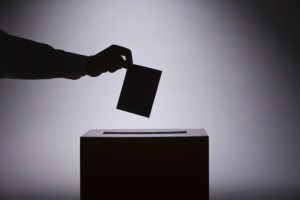On Oct. 15, the California Fair Political Practices Commission issued new regulations on so-called “coordination” between candidates and super political action committees. The new rules are widely considered to be the toughest in the nation. In fact, they’re an outrageous infringement of freedom of speech.
The laws regarding coordination vary from state to state. Since 1995, California has allowed coordinated expenditures between campaigns and outside organizations. With very few restrictions, super PACs have been allowed to back ballot measures and candidates for elective offices while engaging in coordinated efforts with candidate committees. Similarly, Florida is very permissive about coordination between candidates and super PACs, whereas Wisconsin has very strict regulations against it.
California’s new rules on super PAC coordination are a reaction to increased political spending by outside organizations in state elections. Super PACs supporting charter schools spent $26 million last year in hopes of electing charter school executive Michael Tuck as state superintendent of public instruction. Teachers union-backed political action committees spent $316,400 in support of incumbent Superintendent Tom Torlakson. Tuck and Torlakson personally spent a combined $4.836 million on their campaigns.
The broad definition of the term “coordination” between candidates and outside organizations raises the question of whether the new laws are constitutional. FPPC appears to have disregarded the most basic premise of American election law: freedom of speech, as protected by the Constitution’s First Amendment.
Federal Election Commission rules allow candidates to appear at super PAC fundraisers, with some restrictions on how much they can solicit on behalf of such organizations. Corporations, contractors for the federal government and labor unions are prohibited from coordinated communications influencing elections at the federal level.
FPPC’s new rules sweep more activities into the definition of coordination, allowing some activities, not others. For example, a candidate’s appearance at a fundraiser for a super PAC in support of a candidate or a ballot measure is acceptable under the expanded definition. But if a campaign staffer leaves a candidate’s campaign to run a super PAC, the campaign and the super PAC are considered to be in unacceptable coordination with one another regardless of whether they are run as separate entities. Candidates running for office in California are not allowed to conduct any coordinated activities out of their own campaign funds.
California’s rules fail to accord with the current state of play in American politics made possible by the U.S. Supreme Court 2010 ruling in Citizens United. That ruling allowed indirect contributions from corporations and unions to independent expenditure committees, while upholding the decades-long federal ban on direct contributions to candidates. California, by contrast, has afforded very generous free-speech rights for corporations and unions to contribute directly to candidates.
Americans, including Californians, frequently gripe about the increased amount of political spending, but the FPPC is creating a new problem by over-reacting to such concerns. It appears California’s campaign finance regulators are deliberately stifling the First Amendment rights of charter school proponents while leaving the California Teachers Association carte blanche to push its anti-reform agenda, thanks to state laws allowing unions to make unlimited campaign contributions.
The Legislature should reexamine the actions of the FPPC and consider campaign finance legislation recognizing the post-Citizens United reality.




